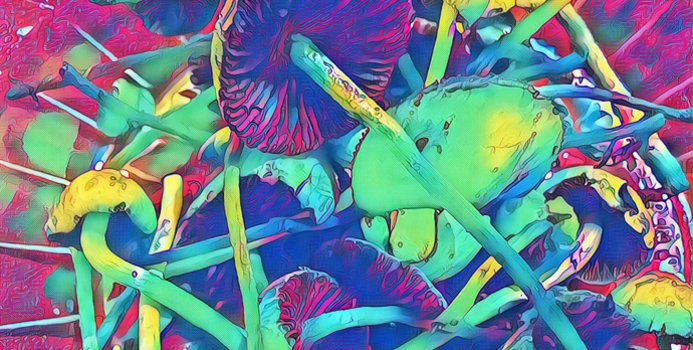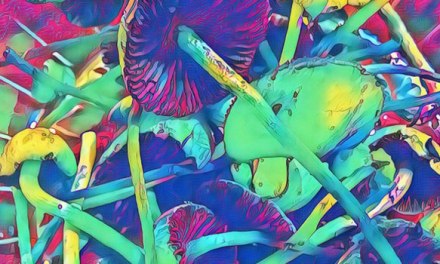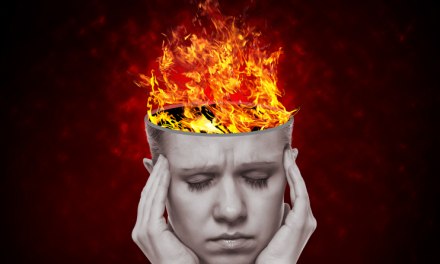A recent incident aboard an Alaska Airlines flight involved a pilot, who having hitched a ride on one of the airline’s flights, attempted to cut the engines in mid-flight. He had to be restrained, and the plane was forced to make an emergency landing, after which he was taken into custody.
When questioned, the offender attributed his bizarre behavior to the effects of some ‘magic’ mushrooms he’d consumed 48 hours earlier.
Further investigation is no doubt forthcoming, but for most people, the obvious question is — Can someone really be under the influence of psilocybin two days after taking it?
This answer is yes. Provided they’ve become psychotic as a result. It’s not exactly common, but I’ve certainly seen it happen, to very different people, on different occasions.
For those who aren’t familiar with psilocybin, The Washington Post reviews the subject in detail here. You may need to register, but it’s free. Some things the article brought to my attention:
Although Psilocybe Mexicana is most commonly identified as hallucinogenic, psilocybin can actually be found in hundreds of different varieties. Not only that: any two mushrooms, even of the same variety grown in the same place at the same time, will nevertheless contain vastly different amounts of psilocybin. No way to tell simply by appearance.
This might help to explain the wide variation in user experience. They’re using the same drug, but perhaps not the same dose.
For this very reason, all the research on the drug’s effectiveness and safety was done using synthetic psilocybin. It’s the only way they can control the dosage. In fact, the large majority of researchers caution against use outside the controlled research environment. It’s too unpredictable.
As with all psychedelics, the user’s mindset and the environment where use occurs are apt to have as much (or more) impact on the experience as the drug itself – but the drug still gets the credit.
Back to drug-induced psychosis. That’s an altered state extending beyond the drug’s presence in the body to include hallucinations, disorientation and memory problems. Based on experience, I might add paranoia and distorted thinking, lasting perhaps two to three months in some cases.
As for risk of psychosis, that “…appears to be higher in people who have a family history of conditions… such as schizophrenia or bipolar disorder.” Makes sense. “Other people who may be at higher risk for a psychotic breakdown…include those who have a history of substance abuse, people who are mentally unstable, and anyone having suicidal thoughts…”
By the way, those are people who are ordinarily excluded from research studies. As a result, we lack good information about what happens to them when they use psilocybin.
Especially in places where psilocybin is legal and therefore widely available, with few if any controls over who uses it or how it’s used.
Once again, based on experience, I’m confident that many of the folks who will try psilocybin in future, because of all the favorable publicity, will fall into those ‘excluded’ categories.
After all, people in great pain are always among the first to try any new, unproven treatment.













